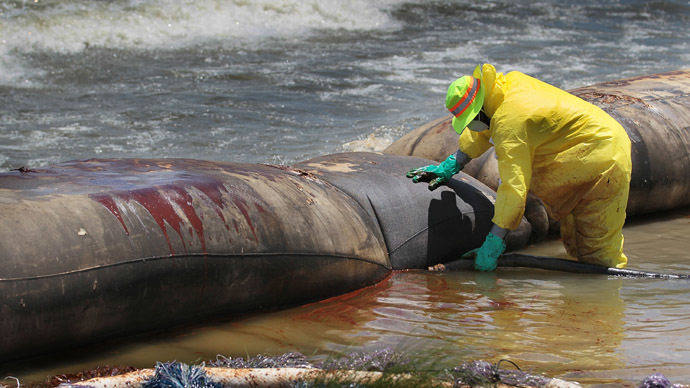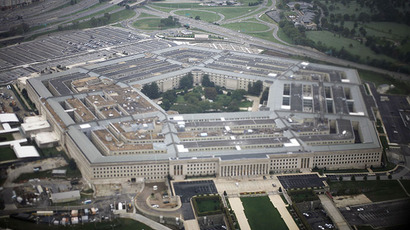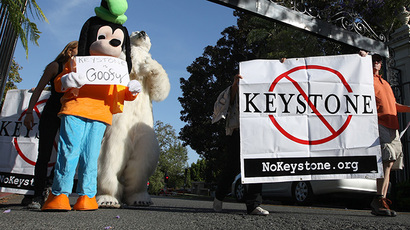Supreme Court justices linked to BP lawyers in multi-billion Gulf spill settlement

Oil giant BP has appealed to the US Supreme Court to reinstate a halt on payments worth possibly billions of dollars related to the 2010 Gulf of Mexico spill. Now, some question whether two Supreme Court justices may be too close to the oil company.
At issue are the millions, potentially billions, of dollars worth of compensation that BP had been doling out to businesses impacted by the massive spill caused by a blown out well off the coast of Louisiana.
The spill, which took three months to halt, caused considerable damage to the surrounding ecosystem, the effects of which are still being calculated - not least of which are the ecological consequences of the large amounts of chemical oil dispersants that were released into the surrounding waters, in addition to the crude itself.
In the aftermath of the spill, BP has been embroiled in legal proceedings and has pushed back as businesses claiming damages against the energy company have ballooned, possibly beyond its initial estimate of $7.8 billion.
Though some of the environmental damage had an immediate and lasting effect on fishing and tourism, the company has bristled as claimants have submitted what it says are inflated damages. In one recent case, a recipient of $357,000 worth of compensation based on lost shrimping income was ordered to return that money after it was found by the court that he had misrepresented his income the year prior to the spill.
Just this week, a federal appeals court ruled that BP must resume paying claims, even as it takes its case to the Supreme Court to review its settlement. The company has questioned whether many of the businesses now taking part in the class action suit were impacted by the Gulf spill.
"Countless awards totaling potentially hundreds of millions of dollars will be irretrievably scattered to claimants that suffered no injury traceable to BP's conduct," the company stated following Wednesday’s ruling.
BP alleges its claims administrator for settlements has approved "$76 million to entities whose entire losses clearly had nothing to do with the spill, such as lawyers who lost their law licenses and warehouses that burned down before the spill occurred." The company further points to $546 million to individuals and companies far from the oil spill cleanup which have no “logical” connection to the spill.
In taking its case to the highest federal court, however, some question whether Justices Antonin Scalia and Samuel Alito should recuse themselves. Both judges have sons who work for Gibson Dunn, a multinational law firm which has been handling BP’s appeals process, reports WWLTV.
Alito’s son became an associate with the firm in Washington DC last August, and Scalia’s son, Eugene, has been a full partner there since 2003. In the case of the latter’s son, he would stand to profit in all of the firm’s cases, including BP’s.
Under US law, federal judges must recuse themselves from cases if their “impartiality might reasonably be questioned” or if their close relative or a close relative’s spouse “is known by the judge to have an interest that could be substantially affected by the outcome of the proceeding.”
However, the rules at the Supreme Court seem to be a little different. In 1993, seven of the nine justices - including Scalia - established a recusal policy that made it unnecessary for judges to recuse themselves if a justice’s relative works at a law firm bringing a case before the Supreme Court.
The new recusal policy set by the court did stipulate that they should step aside in cases brought by law firms where a close relative is a partner, unless the court received from that firm written assurance that income resulting from the Supreme Court litigation would be excluded from the relatives’ shares.
In the case of Gibson Dunn and Scalia’s son Eugene, the firm already informed the Supreme Court in 2003 that that portion of his compensation would be withheld.
“There are different viewpoints on whether this is a reasonable approach to the problem,” Loyola Law professor Dane Ciolino tells WWLTV.
“But at the end of the day it doesn't make any difference. At the end of the day, the Supreme Court sets its own recusal policy and there's no appeal from it.”














